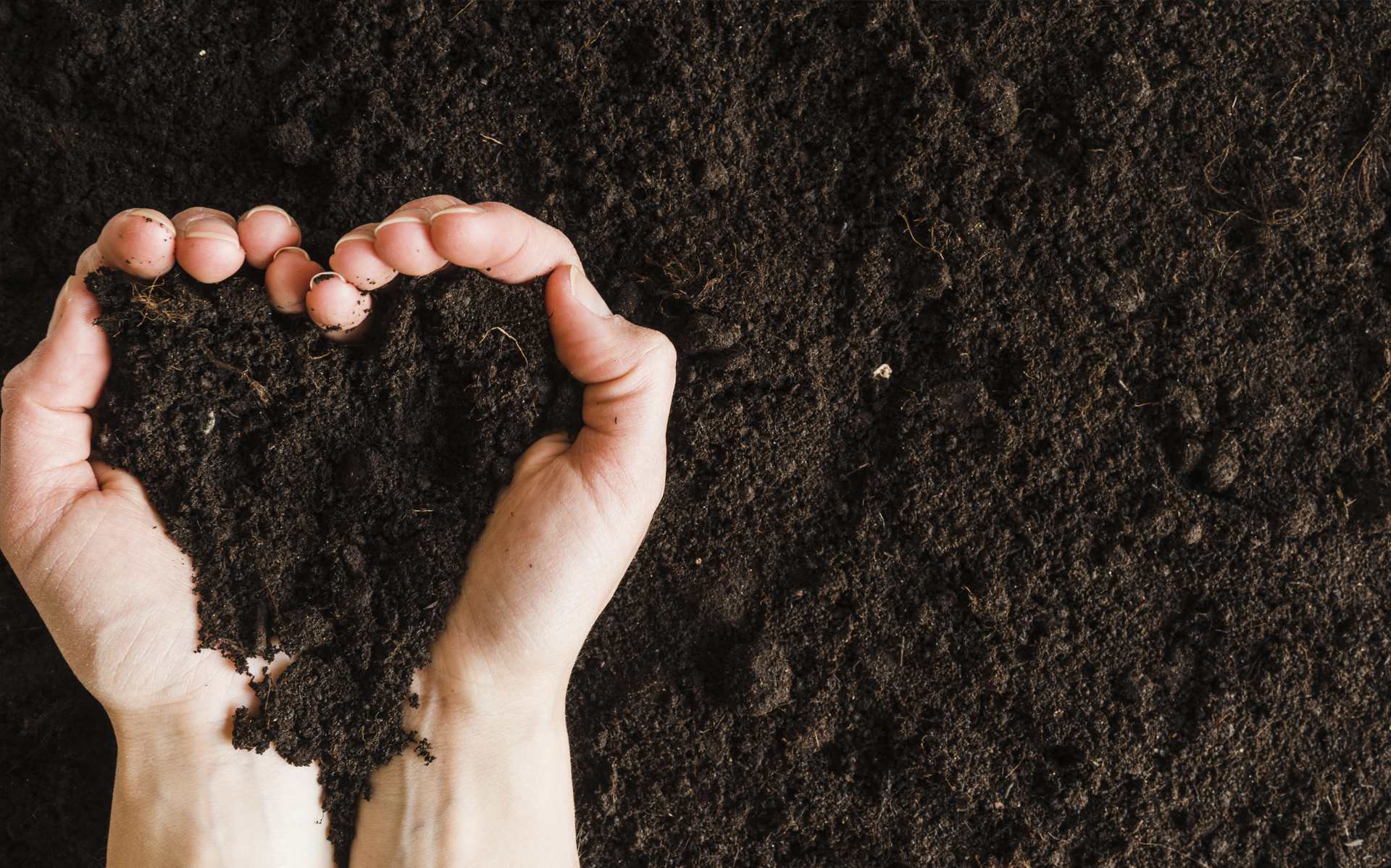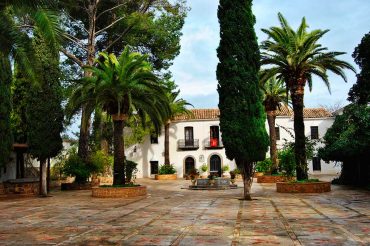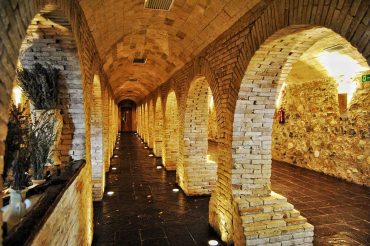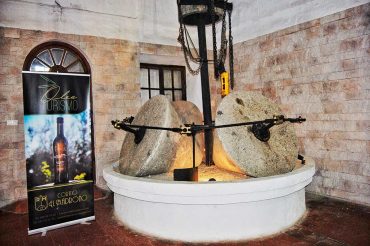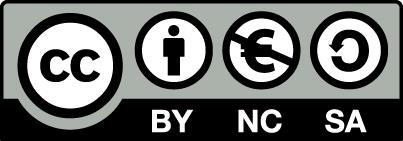INTRODUCTION
El Madroño is a farm located in Martos (Jaén), it is a property of 7 siblings, 5 women and 2 men. Women have played an important role in the launch, development and subsequent management of all the activities carried out on this farm.
All the activities are based on the cultivation of olive groves, as well as the facilities and housing linked to it. This type of housing linked to the farms in Andalusia is known as Cortijos and constitutes an element of the material cultural heritage, whose updating and putting into service of new multifunctional activities, involve an opportunity for potential entrepreneurs in agro-tourism, events organization, industrial processing and direct sale.
El Madroño is an example of how a traditional family business can reinvent itself from the assets of the farm, it is an example of diversification and entrepreneurship in which the priority is the business orientation, and it is an example of integrated family management of multiple owners, in which common management leads to better results than individual management.

In many cases, women are tougher and more persevering than men, we should not limit ourselves and self-pity, we must have goals and go for them with the will to achieve them.
Having a good idea is not enough, it also takes a good execution.
1. PERSONAL DATA
Name
Emilia Rojas Montes
Age Range
46 +
Education
Lawyer, civil servant.
Occupation
General Manager.
2. FARM PROFILE
Address/coordinates
Santiago de Calatrava Road, Km 7, 23600, Jaén.
Farm Area in ha
330 Ha.
Date since when the female entrepreneur owns/rents the farm:
1990.
Nº of workers on the farms
| FULL TIME | |
|---|---|
| Family members | Other than family members |
| 2 | 4 |
| PART-TME/SESONAL | |
|---|---|
| Family members | Other than family members |
| 6 | 15 |
| WOMEN | |
|---|---|
| Family members | Other than family members |
| 5 | 6 |
Farm description
El Madroño is a family business owned by 7 siblings, which acquires different legal structures for its different activities. Its three branches of activity are the farm, which is managed jointly but owned individually; the oil factory, whose facilities, equipment and associated activities are owned and run jointly through a public limited company (PLC); and the farmhouse, whose ownership and activities are also managed jointly, but through a joint ownership structure.
It all started with their father, a psychiatrist by profession, at that time the Madroño was an olive-producing farm and the processing was carried out outside the cortijo.
After his death, his wife Soledad Montes took charge of the business, in those years it was unusual to find women leading large farms. She made the property grow by increasing the number of olive trees, improving the cortijo facilities and building the factory to produce her own olive oil.
Later on, her daughter and Emilia’s sister, Isabel Rojas Montes, was the precursor of new activities, who anticipated the need to diversify the agricultural activity and put her effort in designing, developing and enhancing the cortijo with the celebration of events and weddings (1998).
Now Emilia Rojas Montes is the third woman leading this family farm who together with her son Ignacio, are managing this multifunctional business. They are professionalizing and growing the company, while developing new activities linked to the three existing business lines, such as baptisms, communions, visits, tastings, shows, protocol and decoration services, development of brand image with new packaging, logos and new marketing channels for their olive oil, produced under the principles of integrated production.
3. MULTIFUNCTIONALITY / RURAL CULTURAL HERITAGE
The Andalusian cortijo is a large farmhouse that has had various functionalities in the past, served as home for the owners, housing for workers, school, chapel, workshops, carpentry, forge, food and tools stores, livestock housing , barns for animals, patios for the distribution of activities and spaces, as well as recreation and leisure areas.
In the Madroño, 300 people came to live in past time, who worked on the different tasks required by a large farm like this. The time, mechanization and challenges of modern agriculture have reduced labor needs, leaving many of these spaces devoid of their original utility.
The owners of Madroño have identified the potential of this construction, restructuring the original spaces to serve new economic activities more adapted with the times we live. Thus, the old factory now houses a museum where you can learn about cultural aspects linked to the tradition of olive oil production, where you can learn to taste and differentiate olive oils, here in the factory, with the latest machinery available, they also produce and sell quality olive oils. The old spaces destined for the animals, as well as the patios for the leisure of the personnel have been converted into halls and spaces for the celebration of weddings and events in an environment of great beauty and tradition.
4. CONSIDERATIONS, TRAINING / COMPETENCES INVOLVED
- General considerations
- Training/Competences (Knowledge, Skills, Attitudes) especially relevant for the process
One of the main difficulties that El Madroño has to face as a tourism and catering company is its location. Martos is outside any tourist route, outside any structured offer and outside the interest area of tour operators. This calls into question the need to develop a rural hotel, even though it is an essential element for any integration or cooperation with tour operators.
The management of so many activities is another difficulty. There is a risk of not becoming professional in any of the lines. It is therefore essential to maintain order and scrupulous planning throughout the year. To do this, a calendar of the three lines of business is developed in parallel, identifying what is being done, who is doing the tasks and how much time and resources are required. This makes it possible to carry out a wedding or manage a visit at the same time as collecting olives and making oil without any incompatibilities.
Another risk is complacency, we must be aware that past income does not guarantee future income, so we must anticipate the future, we must be self-critical, we must propose solutions before the problems appear. By introducing improvements, defining ambitious objectives and in a spirit of continuous improvement, progress can be made with fewer uncertainties.
To be able to develop so many activities, a highly motivated, well-trained, versatile, autonomous and resolute multidisciplinary team is also needed. It is very important to make them participate in the success and to make them feel part of the farm. This sense of belonging makes team very participative, contributing ideas and creating an entrepreneurial spirit.
A multifunctional farm has to cover many bureaucratic and legal aspects, each activity has its own regulations, which forces to be up to date with the necessary requirements. If you also want to belong to certifications such as Oleo Tour Jaén (Diputación de Jaén) must pass audits and be willing to face long and complex processes.
Facing activities related to the farmhouse has meant making significant investments to enable spaces, to install equipment such as kitchens, or for the maintenance of facilities throughout the year. These investments, or those necessary to start up the activities, have been mostly faced through own funds. You do not have to depend on subsidies, if a subsidy is requested it is for something that is needed, so even if the subsidy is not granted, that investment is going to be made anyway.
El Madroño was a pioneer in holding events in an Andalusian cortijo, this enclave represents a differential value, without it none of the activities could be developed. The environment provides an added and differential value with respect to other competitors. This aspect provides a certain exclusivity, which is very well perceived by customers, guests, suppliers and institutions.
The farmhouse, besides making possible the development of multifunctionality, is the unifying element of the family business, the one that allows a joint management and the one that gives sense to the whole business strategy. In this sense, the decisions are taken jointly by all seven members of the executive committee, 6 women and 1 man, which meets every quarter to evaluate the past work, and propose future solutions. This structure makes decision processes more complex and time-consuming, but always from a business rather than a personal perspective.
The future challenge will be the transition to the next generation, made up of 28 future owners, which is why each family is training a representative to get to know the business and contribute their vision from other perspectives and professional profiles.
This farm has had a long matriarchal tradition, the last three managers have been women, characterized by exercising authority but being able to be advised by others, always trusting its employees.
They recognize that rural women can sometimes limit themselves; for this no self-pity, they must define objectives and go for them with willingness to achieve them.
In this sense, women are tougher, persevering, constant, sacrifice, and possess a great will. They are able to manage a professional role at the same time as a role as mothers at home.
It is clear that the psychology of men and women are different; women are often more practical, less fanciful, with greater common sense, derived from the decisions made within the family economy. Women have more mental hygiene, do not give importance to what does not, are able to better manage their pride and forget misunderstandings.
In general, women are more creative, more versatile and better equipped for social relationships and detail management. Fundamental skills in an event and wedding management business. The woman-woman relationship is simpler when organizing a celebration as important as a wedding. They know how to handle situations better and redirect potential conflicts.
It is necessary to have a multidisciplinary team to find the opportunity to reconcile personal and family life, so we must promote continuous learning, identifying the training needs of each worker in relation to their position.
It is very important in a multifunctional company time management, organization and planning and allocation of resources to perform tasks.
You have to give yourself the opportunity to make a mistake, so you have to be self-critical and constantly evaluate the results achieved. Objectives must be defined and redefined based on experience.
It is essential the economic evaluation of all aspects related to the activity, being able to extract knowledge of that evaluation and know how to transmit the messages adapting them to those who are addressed. In general, women manage communication better.
In any case it is important to encourage learning and receive advice on aspects related to marketing and marketing. It is one of the fundamental aspects for the success of any multifunctional farm.
Integrated family management.
Career guidance.
Entrepreneurship.
Consistency and discipline.
Multidisciplinary and autonomous work team.
Self-criticism capacity.
Dimension.
Multifunctionality.
Location.
Regional customers.
Complex decision processes.
Tour Operators.
Certifications (Oleo Tour Jaén).
Access to new channels.
Access to the national and international market.
Encouraging greater commercial action.
Potential for future atomisation.
Emergence of potential competitors.
Excess of activities.
Need for high financing for investments.








